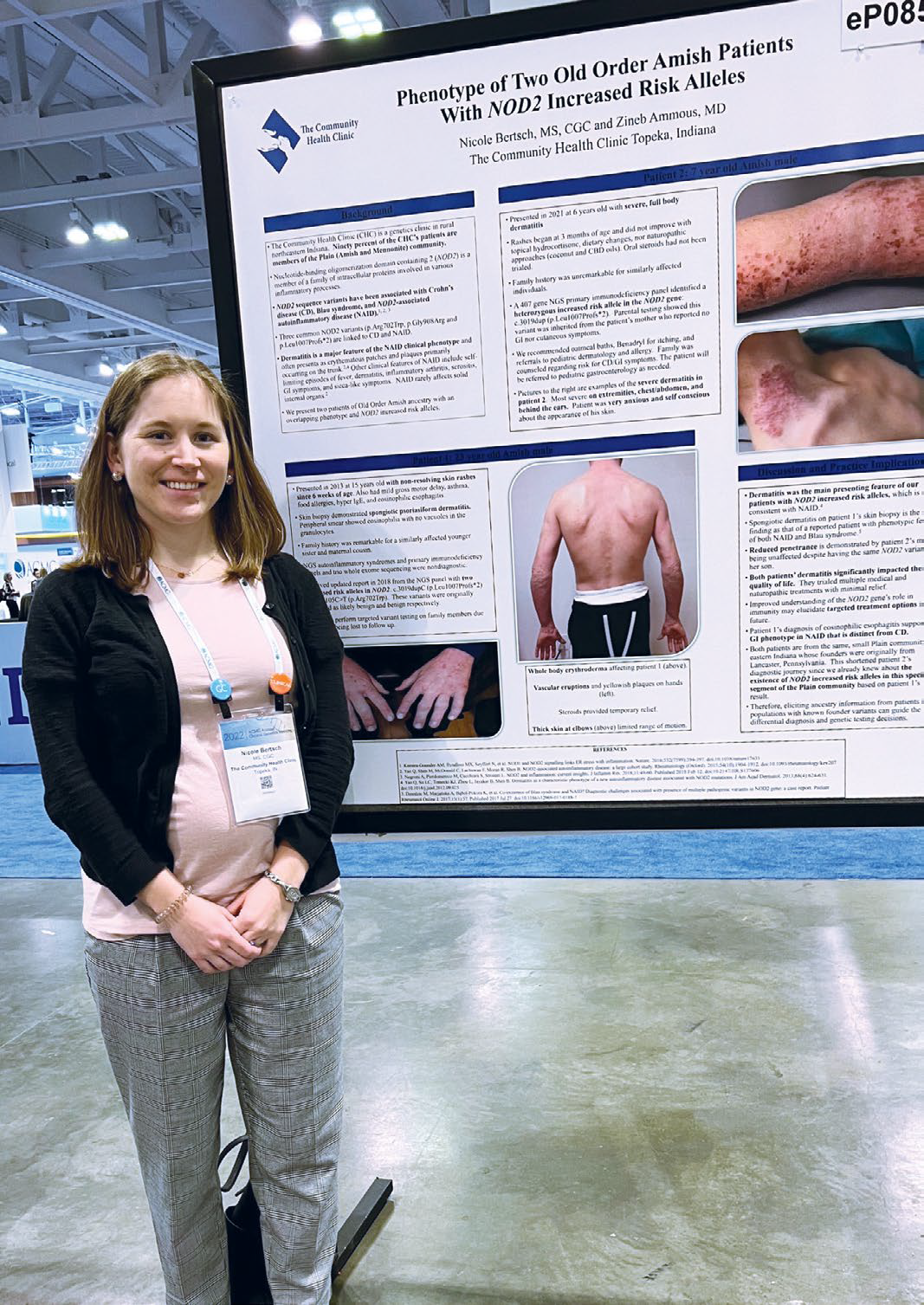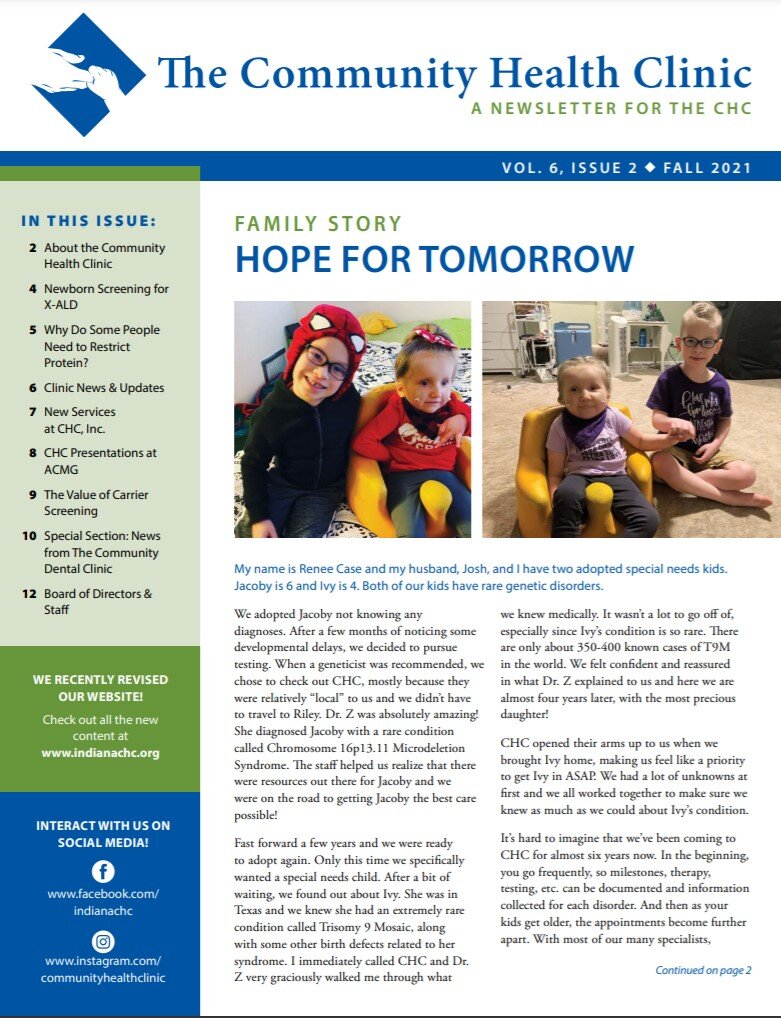Three Community Health Clinic (CHC) team members made a trip to Nashville, Tennessee to attend the American College of Medical Genetics and Genomics (ACMG) Annual Clinical Genetics Meeting from March 22-26. Not only did the team members gain a lot of new knowledge about new genetic treatment measures, they were also asked to come and present poster abstract presentations at the event.
Our genetic counselor, Nicole Bertsch, presented a poster on the clinical features of two Amish patients who both have changes/variants in the NOD2 gene. Both patients presented with severe dermatitis (itchy, scaly skin), and one also had gastrointestinal (GI) problems. For one patient, multiple genetic tests had to be ordered to find the NOD2 gene variant. For the other patient, we did genetic testing that found the NOD2 variant right away since we already knew the variant was present in this particular segment of the Amish community where the family lived. Nicole’s poster described how the patients’ symptoms impacted their quality of life and emphasized the need for more research on the NOD2 gene to learn how to best treat these patients’ symptoms.
Our nurse practitioner, Rhonda Anderson, presented a poster about four Amish patients with pancreatic lipase deficiency (a rare form of exocrine pancreatic failure). The poster was representative of how using targeted testing for founder variants through the Clinic for Special Children (CSC) is cost effective for patients and produces a rapid diagnosis for syndromes that are suspected and known after being diagnosed through whole exome sequencing. We found four patients through whole exome sequencing to have pancreatic lipase deficiency with similar symptoms including: steatorrhea (greasy/oily stools), normal growth and development and lab findings consistent with low pancreatic lipase, low fat-soluble vitamins, low fecal elastase, and low lipids. Two of the four patients had improvement in stool symptoms with the addition of Creon and vitamin supplements.
Finally, our physician, Dr. Zineb Ammous, presented a poster about four similarly unrelated children with a complex multisystem disorder caused by a homozygous or compound homozygous pathogenic variant in the CCDC47 gene. This disorder is also known as Trichohepatoneurodevelopmental syndrome (THNS). Features of the disorder include coarse curly hair, dysmorphic features, cholestasis, pruritus, congenital hypotonia, and severe global developmental delay. It was a long journey (nearly 11 years) before an official diagnosis could link the first three patients by whole exome sequencing. Two out of the three children are of Old Order Amish descent.
In partnership with the CSC we were able to provide targeted testing for the CCDC47 gene and give patient four a diagnosis by the age of 14 days old.






